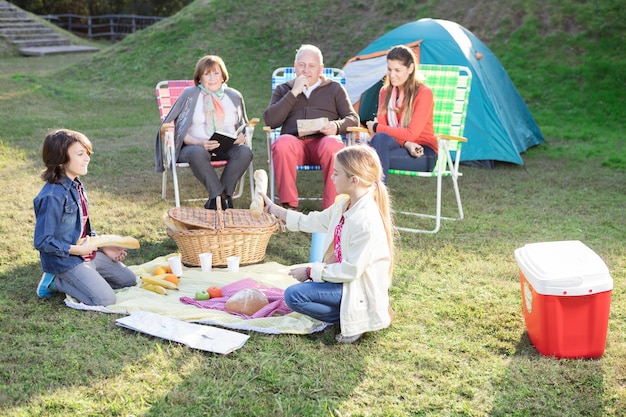How Bad are Disposable BBQs for the Environment?
Disposable barbecues have become increasingly popular in recent years, offering a convenient and portable option for outdoor cooking. However, their convenience comes at a cost to the environment. The widespread use and improper disposal of disposable BBQs have raised concerns about their impact on our planet.
The Problem with Single-Use BBQs
Disposable barbecues are typically made from aluminum foil and contain charcoal briquettes. While they may seem harmless, their negative environmental impact begins even before they are used. The production of aluminum requires significant amounts of energy and contributes to greenhouse gas emissions. Moreover, the extraction of raw materials for charcoal production can lead to deforestation and habitat destruction.
Once a disposable BBQ is used, its negative impact continues. The burning of charcoal releases carbon dioxide, a greenhouse gas that contributes to climate change. Additionally, the smoke produced from burning charcoal contains harmful pollutants such as carbon monoxide and fine particulate matter, which can contribute to air pollution and have adverse health effects.
The Issue of Waste
One of the main problems with disposable BBQs is their waste generation. After use, many people simply discard them without considering the environmental consequences. These single-use items end up in landfills, where they take a long time to decompose. Aluminum foil can take up to 500 years to break down, while charcoal briquettes can persist in the environment for several decades.
Furthermore, improper disposal of disposable BBQs can result in littering. When left on beaches, parks, or other outdoor spaces, these discarded BBQs not only create an eyesore but also pose a threat to wildlife. Animals can mistake the littered BBQs for food or become entangled in the materials, leading to injuries or even death.
Alternatives to Disposable BBQs
To reduce the environmental impact of outdoor cooking, it is important to consider alternative options to disposable BBQs. One popular choice is reusable grills that are made from durable materials such as stainless steel or cast iron. These grills are more sustainable as they can be used multiple times and do not contribute to the waste stream.
Another option is to use eco-friendly charcoal alternatives. For instance, lump charcoal made from sustainably sourced hardwood is a more environmentally friendly choice compared to traditional briquettes. Electric grills or gas-powered BBQs also offer cleaner and more efficient cooking methods with lower emissions.
What Bin Does a Disposable BBQ Go In?
Disposable barbecues are a convenient and popular choice for outdoor gatherings and picnics. However, when it comes to disposing of them, many people are unsure which bin they should go in. It’s important to dispose of your disposable BBQ responsibly to minimize environmental impact and follow local waste disposal regulations.
General Guidelines for Disposing of a Disposable BBQ
While the exact guidelines may vary depending on where you live, here are some general tips to follow:
- Allow the BBQ to Cool: Before disposing of a disposable BBQ, ensure it has completely cooled down. This will prevent any risk of fire or damage to waste collection infrastructure.
- Remove Ashes: If there are any remaining ashes, make sure to remove them and dispose of them properly. Cold ashes can be placed in your general waste bin or in a designated ash bin if available.
- Check Local Guidelines: Familiarize yourself with your local council’s waste disposal guidelines to determine the specific bin for disposable BBQs. In most cases, they should be placed in either the general waste bin or recycling bin, depending on the materials used in the BBQ construction.
The Recycling Option
If your disposable BBQ is made primarily of recyclable materials, such as aluminum or steel, it may be eligible for recycling. However, it’s essential to check with your local council to see if they accept these types of BBQs in your recycling bin. Some councils may require you to separate the metal components from other parts before recycling.
“Responsible disposal of disposable BBQs helps protect the environment and ensures proper waste management.”
General Waste Disposal
If your disposable BBQ is not made of recyclable materials or if local guidelines do not allow for recycling, it should be placed in the general waste bin. Ensure the BBQ is fully extinguished, and consider wrapping it in a bag to prevent any ashes or residue from spreading.
By following these guidelines, you can ensure the responsible disposal of your disposable BBQ, reducing environmental impact and promoting proper waste management.
Do Scrap Metal Collectors Take BBQs?
Scrap metal collection is a popular way to dispose of old or unwanted items while also earning some extra cash. Many people wonder if scrap metal collectors would accept BBQs, considering their metal components. If you are looking to get rid of your old BBQ, the good news is that scrap metal collectors do generally accept BBQs, as long as they are made primarily of metal.
BBQs are often made up of various metals such as steel, iron, and aluminum, which are valuable materials in the scrap metal market. However, it’s important to note that not all parts of a BBQ might be accepted by scrap metal collectors. For example, if your BBQ has plastic or rubber parts, you may need to remove them before handing it over to a collector.
When preparing your BBQ for scrap metal collection, you can start by cleaning it thoroughly and removing any non-metal components. This will not only make it easier for the collector to handle but also ensure that you get the best possible price for your scrap metal.
Sorting and Categorizing Your BBQ for Scrap Metal Collection
Scrap metal collectors usually categorize different types of metals into specific groups based on their value. Sorting your BBQ into the appropriate categories can help you receive accurate pricing for each metal component. Here are some common metal categories found in BBQs:
- Steel: The main body, grill grates, and burners of a BBQ are often made of steel. It is one of the most valuable metals in the scrap market.
- Iron: Certain parts of the BBQ, such as the frame or cast iron grates, may contain iron. While not as valuable as steel, iron can still be accepted by scrap metal collectors.
- Aluminum: Some BBQs may have aluminum components like side tables or lightweight frames. Aluminum is less valuable than steel but can still be accepted by collectors.
It’s recommended to consult with your local scrap metal collector to determine their specific requirements for accepting BBQs and to get an estimate for the value of your scrap metal.
“Scrap metal collectors do generally accept BBQs, as long as they are made primarily of metal.”
Keep in mind that scrap metal collectors typically have certain criteria when it comes to accepting BBQs or any other items. They often require a minimum weight for collection or might not accept items that are heavily rusted or contaminated. Therefore, it’s best to contact your local scrap metal dealer beforehand to understand their policies and procedures for collecting BBQs.
By recycling your old BBQ with a scrap metal collector, you not only ensure proper disposal of the item but also contribute to environmental sustainability by reducing waste and conserving natural resources.
How do you dispose of portable BBQ?
Portable barbecues are a fantastic way to enjoy outdoor cooking during the summer months. However, once you’ve had your fill of burgers and sausages, it’s important to dispose of your portable BBQ properly. Here are some guidelines for how to do so in an environmentally friendly manner.
1. Allow it to cool down
Before disposing of your portable BBQ, make sure it has completely cooled down. This will prevent any accidents or injuries during the disposal process.
2. Remove any remaining charcoal or ashes
After the BBQ is cool, safely remove any remaining charcoal or ashes. You can reuse the charcoal for future barbecues if it is still in good condition, otherwise, ensure you dispose of it properly. Place it in a metal container and let it cool before disposing of it in a designated ash bin.
3. Check with your local council
It’s a good idea to check with your local council for specific disposal instructions. Different councils may have different guidelines regarding the disposal of portable BBQs, so it’s best to follow their advice to ensure you’re disposing of it correctly.
4. Recycle metal parts if possible
If your portable BBQ has metal parts that can be recycled, consider taking them to a local recycling center. Metal recycling helps reduce waste and can contribute to sustainability efforts in your area.
5. Dispose of non-recyclable parts in general waste
If certain parts of your portable BBQ cannot be recycled, they should be wrapped in a sturdy plastic bag and placed in the general waste bin. It’s important to minimize the environmental impact by disposing of non-recyclable items responsibly.
Remember, always follow your local council’s guidelines for proper disposal. They will have the most up-to-date and accurate information for your area.
Can you put disposable BBQ in bin?
Disposable barbecues are a popular choice for outdoor cooking, especially during the summer months. However, it is important to dispose of them correctly to avoid any potential hazards or damage to the environment.
Why can’t I put a disposable BBQ in the bin?
While it may be tempting to simply throw away a disposable BBQ in the regular bin, this is not the recommended method of disposal. Disposable barbecues are made of materials that can remain hot for several hours after use, which poses a fire risk when placed in a bin with other waste. Additionally, the metal components of the BBQ can cause damage to waste management equipment.
How should I dispose of a disposable BBQ?
To safely dispose of a disposable BBQ, it is best to follow these steps:
- Allow the BBQ to cool completely before handling.
- Empty any remaining ashes and charcoal into a designated ash bin or suitable non-combustible container.
- Wrap the cooled BBQ in aluminum foil or place it in a sturdy plastic bag to prevent any residual heat from causing a fire.
- Check with your local council or waste management facility for specific instructions on how to dispose of the BBQ.
What are the alternative options for disposal?
If your local council or waste management facility does not provide specific instructions for disposing of a disposable BBQ, there are some alternative options:
- Consider purchasing a portable charcoal BBQ that is designed for reuse.
- Look for recycling facilities that accept metal and aluminum products, as some may allow you to recycle the disposable BBQ.
- Donate your used disposable BBQ to a local charity or community organization that may be able to repurpose it.
Remember, proper disposal of a disposable BBQ is essential to ensure the safety of others and protect the environment. Always follow the guidelines provided by your local council or waste management facility to ensure responsible waste disposal.
How long do disposable BBQs stay hot?
Disposable barbecues, also known as instant barbecues, have become a popular choice for outdoor cooking in the UK. They are convenient, affordable, and require no additional equipment. However, one common question that arises is, how long do disposable BBQs stay hot?
The heating duration of a disposable BBQ
The typical duration for a disposable BBQ to stay hot varies depending on various factors such as the brand, quality, and weather conditions. In general, a disposable BBQ can stay hot for approximately 1 to 2 hours.
The heating duration can be extended by using certain methods:
- Preheating: Allow the BBQ to heat up for about 20 minutes before cooking to ensure consistent and longer-lasting heat.
- Wind protection: Shielding the BBQ from strong winds can help retain the heat and prevent it from fizzling out quickly.
- Insulation: Placing the BBQ on a heat-resistant surface, such as bricks or a barbecue stand, can help insulate and retain the heat.
It’s important to note that disposable barbecues are designed for small gatherings or quick cooking sessions. If you’re planning a longer barbecue event, it may be more suitable to opt for a larger, traditional charcoal or gas barbecue.
Pro tip: To make the most out of your disposable BBQ, plan and prepare all the food you intend to cook before lighting it up. This way, you’ll maximize the heat and cooking time available.
Remember to follow proper safety precautions when using disposable barbecues. Keep them away from flammable materials, ensure proper ventilation, and dispose of them responsibly after use.
Conclusion
Disposable BBQs may offer convenience for outdoor cooking, but their impact on the environment should not be overlooked. From their production to their disposal, these single-use items contribute to greenhouse gas emissions, air pollution, habitat destruction, and waste generation. By opting for reusable grills and sustainable cooking alternatives, we can enjoy our outdoor activities while minimizing our ecological footprint.
In order to protect the environment and preserve our natural resources, it is crucial that we make conscious choices when it comes to our everyday actions – including our choice of BBQ equipment. By considering the long-term implications and exploring sustainable alternatives, we can all play a part in mitigating the environmental impact of disposable BBQs.



